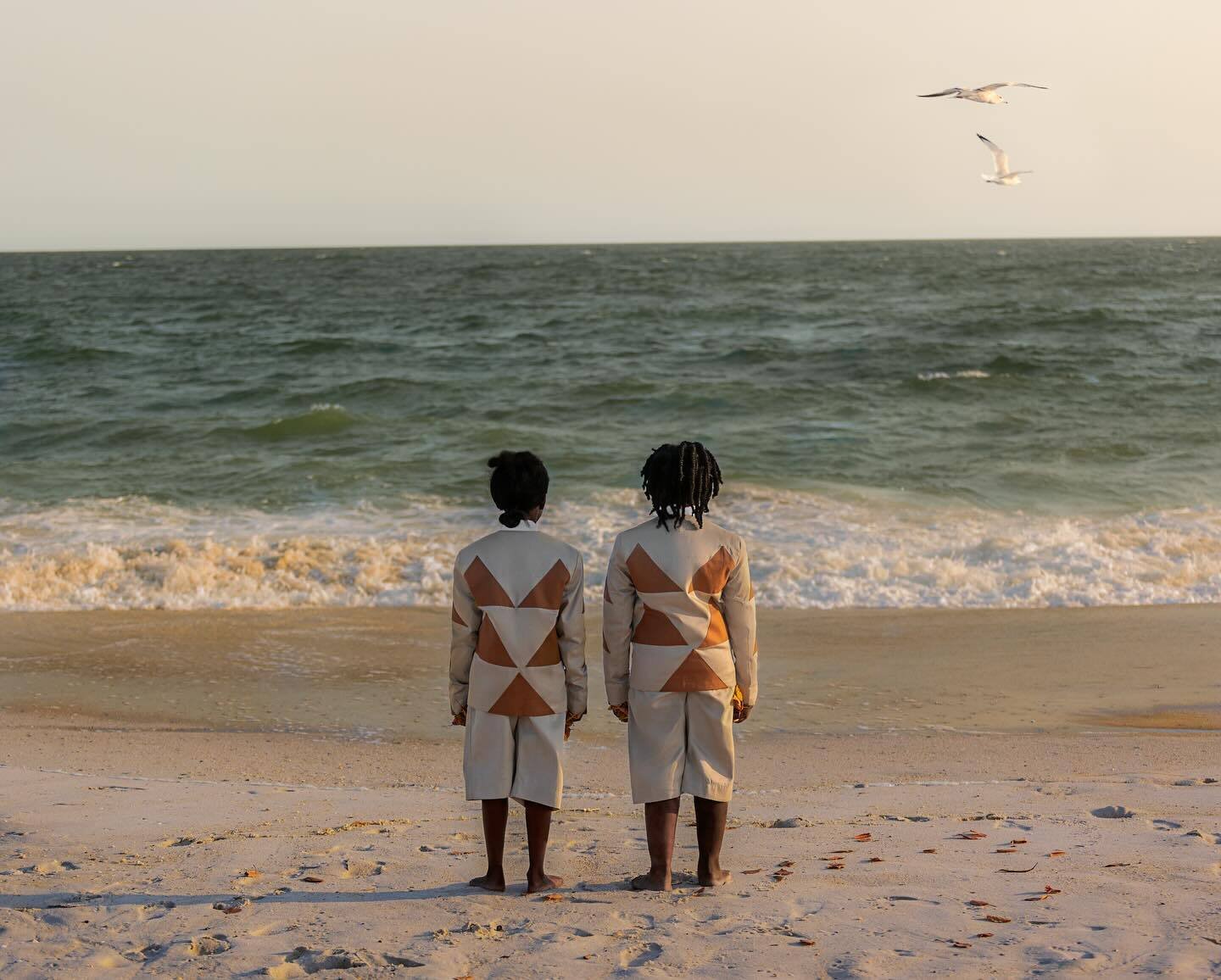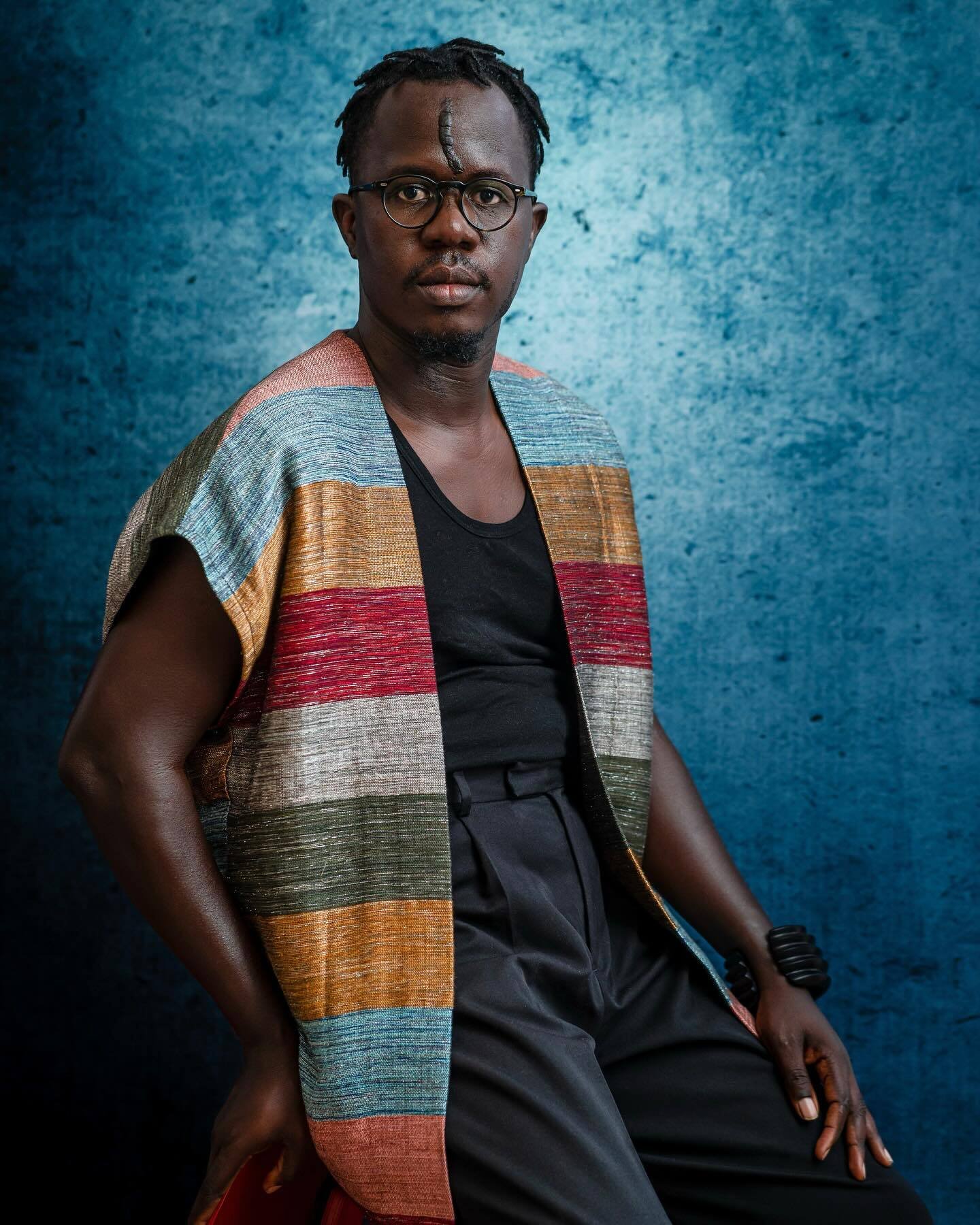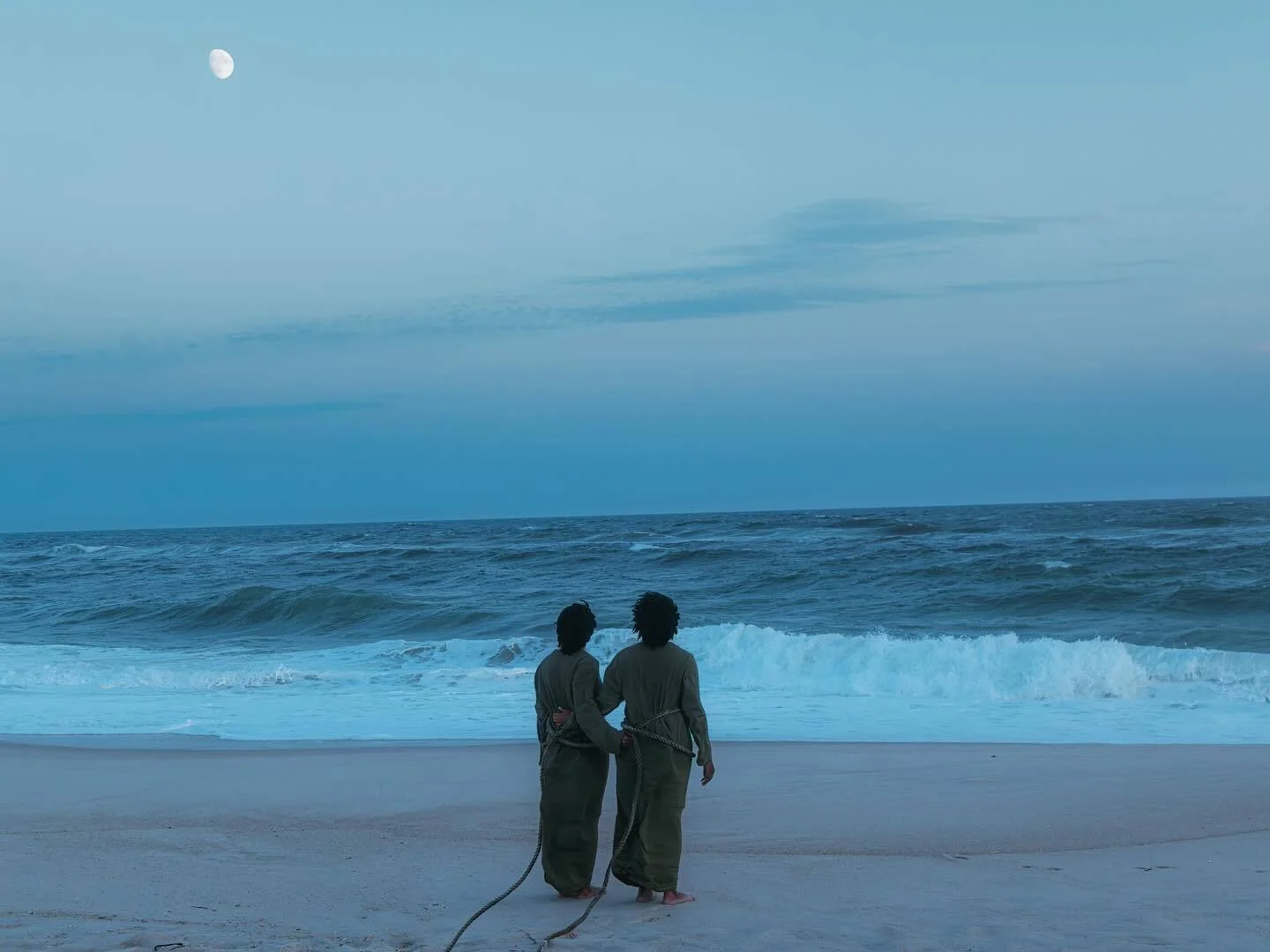In conversation : Malick WELLI presents Forgotten Paradise : PASSAGE
Born in 1990 in Kaffrine, Senegal, Malick Welli’s photography questions the sacred territories of memory, spirituality, and the unseen forces that bind us across time and space. Anchored in the profound oral traditions, mysticism, and visual culture of his homeland, Welli’s practice surpasses conventional modes of representation, dynamically interacting with narratives that interrogate Black spiritual and cultural heritage.
Malick WELLI, Credit : Khalifa HUSSEIN
In this interview and within the context of Black History Month, Malick reflects upon his artistic progression, his latest project Forgotten Paradise: Passage, and the transformative potency of ritual as both a conduit for personal introspection and a catalyst for collective healing—an invitation to reconsider the past and envisage new outlooks.
Maria YIGOUTI : How would you describe your artistic journey, from early influences to your current practice?
Malick WELLI : My artistic journey is shaped by memory, spirituality, and the unseen forces that connect us across time and space. Growing up in Senegal, I was immersed in oral traditions, mysticism, and a visual culture that seamlessly blends the sacred and the everyday. Photography became my way of navigating identity, belonging, and history. Over time, my practice evolved into a fusion of photography mise en scène and installation, allowing me to construct visual narratives that interrogate themes of displacement, resilience, and transformation. My work moves beyond documentation to create immersive, staged compositions that evoke both collective memory and personal reflection.
Maria YIGOUTI : Could you introduce your latest project, Forgotten Paradise: Passage, and share how it fits into the broader trajectory of your work?
Malick WELLI : Forgotten Paradise: Passage, created in collaboration with director Charlotte Brathwaite, explores displacement, spiritual resilience, and the sea as both witness and metaphor. The work unfolds as a series of vignettes—figures embracing, standing in positions of authority, releasing doves, and flying kites against the backdrop of the Atlantic Ocean. These gestures offer an alternative way of engaging with historical trauma—one that prioritizes resistance, renewal, and remembrance. The project extends my ongoing exploration of Black spiritual traditions and the role of ritual in reclaiming agency.
Bound by the horizons
Maria YIGOUTI : Rituals emerge as acts of spiritual resilience and defiance. How does your focus on subjects through performances and ceremonies transform historical trauma into a space for collective healing and spiritual renewal?
Malick WELLI : Rather than directly representing historical trauma, my work seeks to create a space for spiritual restoration. Rituals such as cleansing, offering, and flight become acts of defiance against erasure. The images capture moments of transition—water pouring over a figure’s head, a ship lifted skyward, wings attached to a body—each symbolizing an invocation of memory and a bridge between past and future. These performances activate the space between history and possibility, offering gestures of healing that transcend time.
Maria YIGOUTI : The rites in your work, such as cleansing or baptism on the shore, reflect a profound reverence for spiritual descent and revival. How does ritualistic iconography convey themes of resilience and transcendence?
Malick WELLI : Water is central to my work—not only as a site of historical trauma but also as a space of renewal. The act of submersion, cleansing, or carrying water signifies rebirth, endurance, and connection to ancestral wisdom. Similarly, the presence of flight—figures holding doves, lifting ships, or embodying winged forms—represents transcendence, a way of envisioning liberation beyond physical and temporal boundaries. These visual metaphors reimagine resilience as more than survival; they suggest transformation and spiritual elevation.
“Rather than directly representing historical trauma, my work seeks to create a space for spiritual restoration. ”
Maria YIGOUTI : What is the meaning behind the positioning of your subjects, turned away from the viewer in your work?
Malick WELLI : The act of turning away is both a refusal and an invitation. It resists the voyeuristic gaze, protecting the subject while shifting the viewer’s focus to the gesture itself. In Passage, the figures looking toward the sea create a space of contemplation—what are they seeing, remembering, calling upon? Their positioning removes the burden of representation from the subject, allowing the work to engage with presence beyond visibility.
Maria YIGOUTI : How does your photography preserve and transform the Black visual archive, engaging with diasporic memory while acting as a transformative force of resistance and fortitude?
Malick WELLI : My work expands the Black visual archive by centering narratives that go beyond historical documentation. Rather than recreating past suffering, I focus on how images can reclaim agency and reimagine what has been lost. Through photography mise en scène, I construct symbolic spaces that engage with memory, spirituality, and speculative futures. The figures in my work do not exist as historical artifacts; they exist as part of an ongoing conversation with the past, present, and what is yet to come.
“I construct symbolic spaces that engage with memory, spirituality, and speculative futures. ”
Maria YIGOUTI : How does your work foster individual growth while nurturing a collective sense of strength and belonging within the community?
Malick WELLI : I see my work as both personal and communal. While deeply introspective, it is always in dialogue with a broader lineage of Black spiritual and cultural traditions. By engaging with ritual, water, and movement, my images offer spaces where individual reflection meets collective healing. The themes I explore—displacement, resilience, and transcendence—are personal yet universally resonant, inviting viewers to see themselves within these narratives of endurance and renewal.
Find the work of Malick WELLI on www.malickwelli.com, Artsy, and on his personal spaces.










